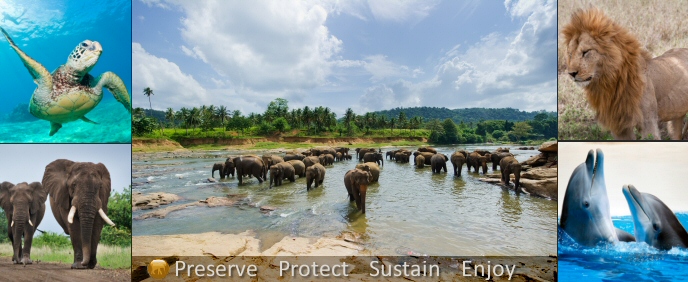
Eco Tours in Australia - Sustainable Tourism & Conservation Laws
In the world of adventure tourism, Australia is king. This is driven by a number of factors, not the least of which is the vast tracts of completely uninhabited wilderness that is a hallmark of the Australian landscape. Not only does Australia have pristine tropical jungle, but it also has a vast coastline and some of the most popular deserts in the world. It is a country that appeals to a diverse set of personalities, and this makes tourism one of the most important economic drivers there. This high amount of tourism creates the necessity for environmental laws that can protect the land and resources from over-exploitation.
One of the most significant of these laws is the Environment Protection and Biodiversity Conservation Act of 1999. This act empowers Australian government bodies to enforce a number of laws that protect the cultural and biological heritage of Australia. The act accomplishes this by establishing regulations that help protect the natural landscape from undue usage, and also by promoting the recovery of threatened species and ecological communities. Whenever laws are put in place to protect nature, there is an inevitable clash between tourism and the law. Thankfully, these laws are not anything that would likely confuse the average tourist, and would generally only cause trouble for people that were looking for trouble. For example, the unwilling destruction of sensitive habitat through trekking or other such activities would not result in any issues with law enforcement. However, if a tourist were to purposely enter into a protected area with the intent of removing rocks, fossils, or in some other way disturbing the area, they could be liable for monetary and criminal damages.
The Great Barrier Reef Marine Park Act has a special significance in the history of not only Australia, but the whole world. It set forth the provisions that were necessary to crate the Great Barrier Reef Marine Park off the coast of Australia. The Great Barrier Reef is known worldwide as one of the most biologically diverse areas on the entire planet, as well as one of the most ecologically sensitive ones. The Marine Park Act was created to address the numbers of concerns that were being raised over the effect of rampant tourism upon the reef. It creates guidelines through which tourists can interact with the reef, as well as guidelines regarding which areas can be visited and at what times of the year. This heavy level of regulation is necessary to give the reef adequate protection from the impact of man.
Those who travel to Australia will find a diverse array of activities no matter what time of year they happen to go. Not only can tourists visit some of the most pristine jungle habitat in the world, but they can also visit some of the most immense and desolate deserts in the world. The deserts are home to wild camels that were introduced by early settlers, and now allowed to roam freely in the outback. The jungles are home to the largest crocodiles in the world: the infamous saltwater crocodile. Aside from the open spaces, there are a number of popular tourist destinations that require less physical exertion. One such destination is the Australia Zoo, home of the world famous Steve Irwin. Even since his death, Australia Zoo has remained one of the most popular attractions in the entire country. A large part of their profits get funnelled into the many conservation organizations that Steve Irwin founded or supported throughout his life.
For an introduction to travelling to Australia, here are some mini-guides to the popular cities of Sydney, Melbourne, Brisbane, Perth and Adelaide. Holiday-makers also frequently enjoy the sun and sand of The Gold Coast, The Sunshine Coast and Cairns.
Those who would like to travel a little further off the beaten track are likely to be intrested in visitig Uluru (better known as Ayers Rock) in the centre of the country, Alice Springs, Western Australia's unique Broome or the Northern Territory's Darwin.
No matter how someone decides to visit this vast and starkly beautiful country, they will not be left unfulfilled. There is so much to see and do here that it almost seems impossible for any one tourist to do it all. This popularity is both the greatest financial benefit to the wildlife here and the greatest ecological bane to it as well. The laws in place to protect the environment here are very necessary, given the popularity and sensitivity of the ecological wonders. By using some basic common sense and by adhering to the readily posted regulations during their visit, tourists can ensure that they will have a memorable experience without any trouble from the authorities.

